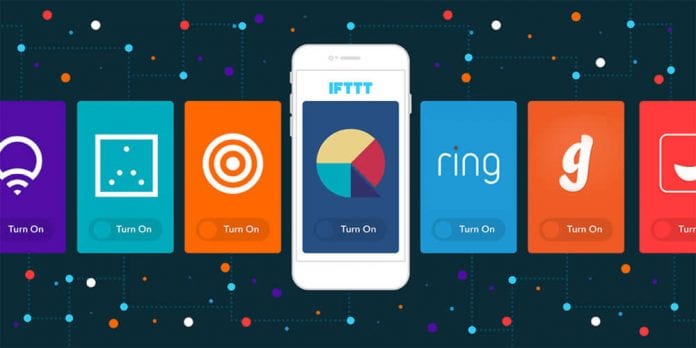IFTTT is famous for its ability to allow users to automate functions between different apps. For instance, it can enable you to turn on your air conditioning using the smart thermostat. The developers behind it are focused in the home improvement sector. But now they want to take their app interoperability to a whole new level. Instead of developers having to write the interoperability recipes directly in the IFTTT site, the company has integrated IFTTT’s recipes in third party apps.
IFTTT recipes are incredibly useful in getting apps and devices we use on a regular basis to interact. The interoperability of gadgets and apps makes life a whole lot easier. The one downside it had before is that users had to download the app into their smart devices, say a smartphone. Now you do not need to have the app; IFTTT has partnered with lots of developers to have the recipes written in the apps instead of the web service handling everything from elsewhere. The results of their efforts are endless features in apps and devices and services beyond what developers hoped.
The number of app developers partnering with IFTTT in their new campaign is surprising. These partners include Foobot’s indoor pollution monitor, Ring’s video doorbell, Qapital’s banking app, Automatic’s car adapter, Roger’s voice messenger and Garageio’s garage door controller. To put the icing on the cake, users can save the recipes in the third party apps, thus eliminating the need to visit the IFTTT app or website.
A perfect application of the integrated IFTTT recipes is on the internet connected doorbells by Ring. Ring has been testing the recipes for more than six months and has come up with amazing recipes. Ring CEO Jamie Siminoff said the most attractive feature in the Ring doorbells is the integration with a light bulb. Now users can have a lightbulb turned on when the doorbell rings. That is just one simple recipe. Ring can have more functions like sending messages via slack to employees when there is someone in front of the office door.
The new development by IFTTT comes amid a surge of smart home devices and applications by both Amazon and Google. This web service hopes to be the connectivity strand between all the incredible apps and devices developed by these big tech companies. According to IFTTT’s CEO the surge in smart apps and devices was the founding thesis of the company six years ago. “Many of the bets made by our company in 2010 are beginning to pay off.”
At the moment it is not clear the kind of revenue it will gain from the third party recipes integration. However, it is evident users will be enthusiastic about the recipes in their smart devices. But, the big question is, will big tech companies turn to IFTTT for app interoperability?









